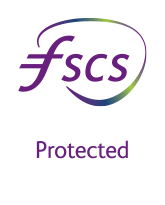As we head into 2023, consumer champions Which? are urging people to be vigilant as ‘relentless’ scammers look to take advantage of everything from new year purchases, to soaring energy bills, to the ongoing cost of living crisis.
Many banks and building societies will sadly be familiar with supporting victims in situations where fraudsters have tried to, or been successful in, persuading them to withdraw sums of money and hand it over. This type of scam, known as authorised push payment fraud, is becoming increasingly common because the criminal persuades the victim to move funds without needing to gain access to the victim’s account. Once the criminal has the funds in their possession, it is extremely difficult to trace and recover them. In the first half of 2022, there were over 95,000 reported cases of authorised push payment fraud with losses totaling £249 million.
These types of scams can involve anything from rogue builders offering to do bogus work on the victim’s property, to schemes where the fraudster impersonates a police officer or employee from their bank or building society, saying that the victim’s account has been compromised and needs to be emptied to stop their savings being stolen. However, what these scams have in common is that they target the most vulnerable in our society, including elderly victims who are particularly at risk.
Across Newbury Building Society, our people are vigilant for signs that a member could be being defrauded. One of the ways we keep our customers safe is through The Banking Protocol - a UK-wide rapid response scheme, developed by UK Finance, National Trading Standards, and local police forces. The scheme allows our people to alert the police when they think a customer is being scammed, whether in branch, on the telephone or online. Police will then visit the branch or the customer’s home to investigate the suspected fraud.
The Banking Protocol has prevented £230.1 million in fraud and led to 1,079 arrests since it launched in 2016, with £27.4 million stopped through the scheme in the first 6 months of 2022. If you’re worried that someone might be trying to scam you out of your hard-earned money, remember these three rules:
- Stop – genuine organisations will never pressure you to reveal pin numbers, passwords or ask for sensitive financial information. Never transfer money at the request of an unknown caller.
- Review – if you’ve got a letter, email, or text message – do not click on any links you’re suspicious of. Check for spelling mistakes, obvious grammatical errors, or incorrect information as these can be signs of scams. Don’t be embarrassed to say no, hang up, or ask for more information or credentials.
- Report – you can report any fraudulent activity to Action Fraud on 0300 123 2040. Never be afraid to call your bank or building society to check whether communications are genuine, or to report suspicious activity.
For more information on keeping your money and information safe, visit our Fraud and Online Security Hub.




